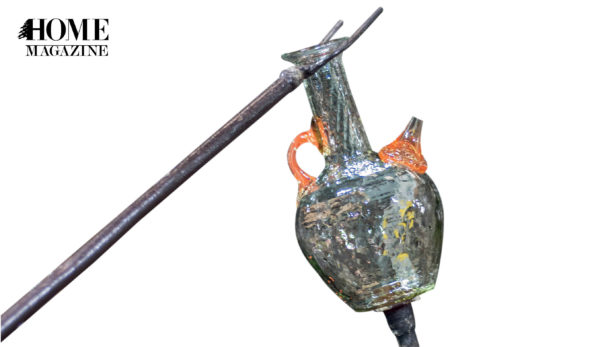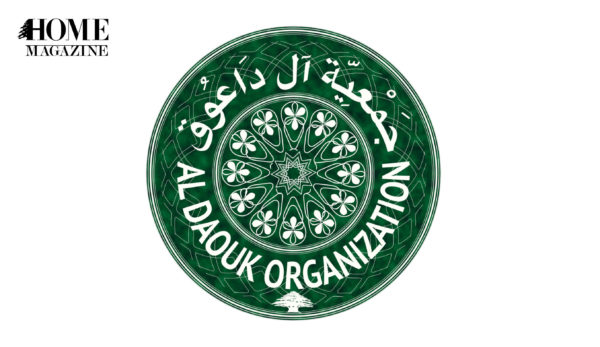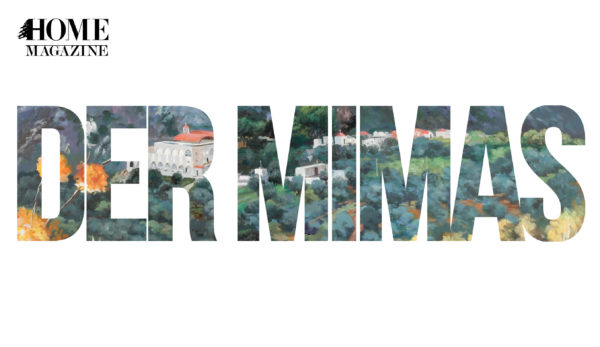Ali Osseiran is a representative of the Zahrani District to the Parliament, where he has served since 1993. His father, Adel Osseiran, or Adel Beyk, as he came to be called, was a recognized leader of the Lebanese fight for independence from France and went on to become a distinguished politician in the new country.
In interviews with HOME, Ali Osseiran and his sister, artist Samia Osseiran, talked about their father’s legacy and their family’s history and commitment to education, social justice, secularism and Lebanon’s full independence.
Hayat Osseiran, Ph.D., a senior child labor consultant at the Regional Office of the International Labour Organization for the Arab States, and engineer Nabil Osseiran also added to this story about their prominent Saida family.
History of the family
The Osseiran family traces its roots to Iraq, where its ancestors were part of the Bani Asad, the tribe that fought alongside Husayn, son of Ali and grandson of the prophet Muhammad, at Karbala in the year 680 (61 AH). Survivors of the tribe suffered persecution as Shiites (partisans of Ali) and in time one of its members, Haidar, fled to Baalbek, where he had two sons, Ali and Osseiran.
In time, Ali settled in Lalaa in Western Bekaa and Osseiran settled in Saida, where his was the first Shiite family in a predominantly Sunni city.
As early as the 1860s, the Osseirans received support from Iran against Turkish persecution of Shiites. Iran influenced the appointment of al-Hajj Hassan Osseiran as head of the merchants there and appointed Ali Affandi Osseiran as its general consul to Saida and the surrounding area.
As a result of their diplomatic status, the Osseirans and the people working for them were given favored treatment by the Ottoman government, including exemption from military service and taxes. These privileges, their growing wealth and landholdings, and their efforts to provide social support, counseling and mediation services to their followers, especially in the Zahrani area of Saida, gave the leaders of the family considerable social and political status.
Abdullah Osseiran, who succeeded his father as Iranian consul, figured prominently in the struggle for independence from the Ottoman Turks.
The Osseirans, however, were not unified in their opposition to French control of Lebanon. Abdullah’s elder brother Najib Osseiran, who sided with the French, was rewarded with election to parliament and later became vice-speaker of parliament for six years.
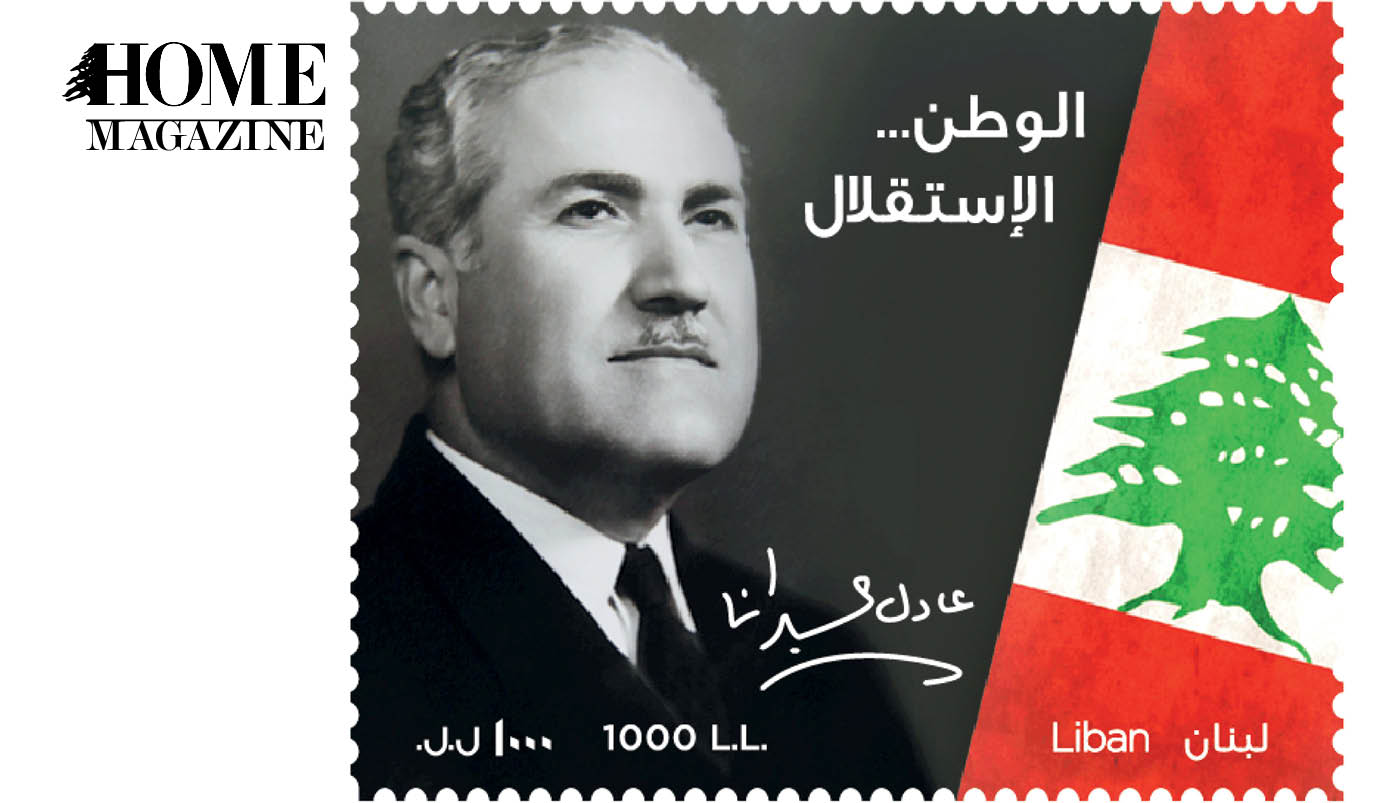
Adel Osseiran, after graduating from the American University of Beirut, followed his father Abdullah in opposition to the French. In 1936, he led a major demonstration of some 5,000 people in Nabbatieh against the French tobacco monopoly. He was jailed along with other leaders of the demonstration.
In his fiery speech to the judge of the military court, he declared that he was not a common criminal but a political prisoner, and that the French, who taught the world of freedom by their own revolution, should respect the struggle for freedom by others.
In 1937, Adel ran for parliament and was the first candidate in the history of Lebanon to present a formal electoral platform. It expressed opposition to the French and to the feudal, clan-like social and political order. It supported social, economic, cultural and administrative reform as well as Arab unity. It called for compulsory elementary education and the unity of the educational programs in the country, as well as innovations in agricultural technology. He lost to the candidate supported by the French.
In 1943, Adel Osseiran was again jailed with other members of the independent Lebanese government when the British entered Lebanon with De Gaulle, who was in exile against the Vichy government. They were soon freed due to demonstrations throughout Lebanon and British support.
Adel Beyk, as he was called, was recognized as a leader of the independence movement when Lebanon won its independence from France in 1943, and became minister of commerce in the new government.

From 1953 to 1992, he represented the Zahrani district in the parliament, except for the period of 1964 – 68, and was speaker of the parliament between 1953 and 1959. He held many different cabinet portfolios over the years and won reelection for the last time in 1972, after which there were no more elections for 20 years.
He consistently called for secularism and for compulsory army service for the security of Lebanon, particularly South Lebanon. He supported U.S. aid through the Point IV Program, though he rejected any political implication of it. And he personally administered the construction and development of 15 schools in Zahrani and Nabatieh funded by that program.
In 1954, he established an important orphanage in the south, Dar al-Yateem al-Arabi (House of the Arab Orphan). In 1956, he founded Jam’iyat al-Ta’addud al-Rifi (Rural Cooperative Society), which supported rural development. And in 1969, he established a technical agricultural school near Nabatieh that was destroyed by Israeli bombardment in 1981 and has since been rebuilt. He participated in drafting the Ta’if Accord, which officially ended the Lebanese civil war at the end of 1989, and then retired from politics in 1992.
Ali Osseiran followed his father as representative to parliament for the Zahrani district from 1993 until now.
“The Osseiran family traces its roots to Iraq, where its ancestors … fought alongside Husayn, son of Ali and grandson of the prophet Muhammad.”
Other prominent Osseirans
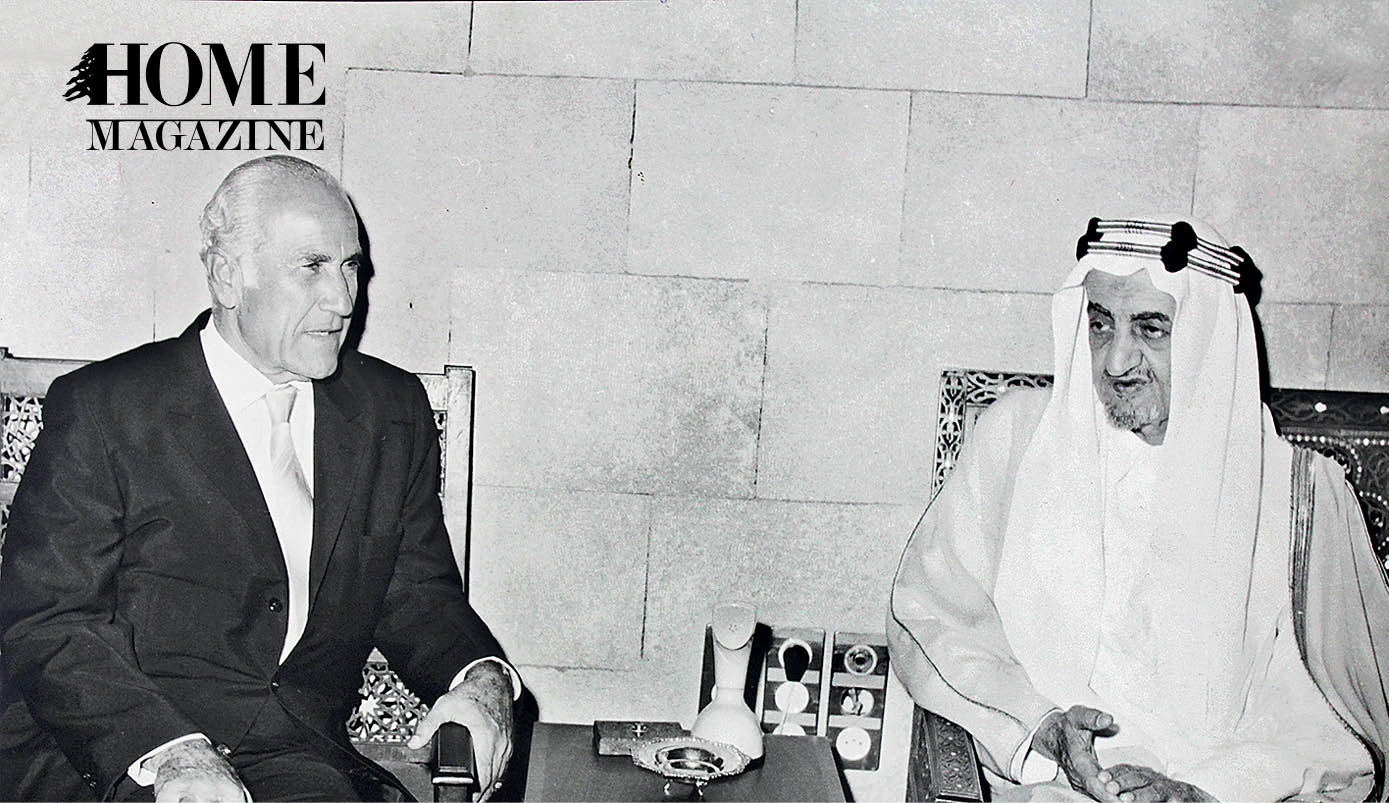
Dr. Fouad Osseiran, from the Hajj Hassan branch of the family, was the first obstetrician and gynecologist, and the first forensic doctor in South Lebanon. He built a maternity hospital that evolved into the first general hospital in South Lebanon. His work as a forensic doctor led him to finding abandoned newborn babies that he brought to the hospital and to his wife to care for. He added rooms to his house to accommodate them and in time expanded the building into a huge orphanage that today takes up to 300 orphaned and street children, and provides their food, clothing, education and vocational training.
In 1941, prior to Lebanon’s independence, Dr. Fouad Osseiran was appointed Minister of Health, Public Works and Agriculture. After he died, his sons, Drs. Imad and Majed, and engineer Nabil Osseiran took over the orphanage and hospital. They also built an institution for the elderly in south Saida, which was recently inaugurated to receive not less than 100 elderly persons at a time, providing them with medical, nutritional and psychosocial support.
Zuheir Osseiran, both a journalist and an activist, started working in the press in the 1930s. He was detained by French mandate authorities many times for his participation in the struggle for Lebanon’s independence. He served as head of the Lebanese Press Federation between 1965 and 1967, and was honored for his patriotism and the pivotal role he played in establishing Lebanese independence and the National Pact. He belonged to several nationalist parties and was among the founders of the Permanent Palestine Bureau. In an event in his honor in 2006, the press federation’s current head Mohammed Baalbaki declared that Zuheir Osseiran was a patriot and a bright journalist who had “fought through his pen” for his country and the “freedom of the word.”
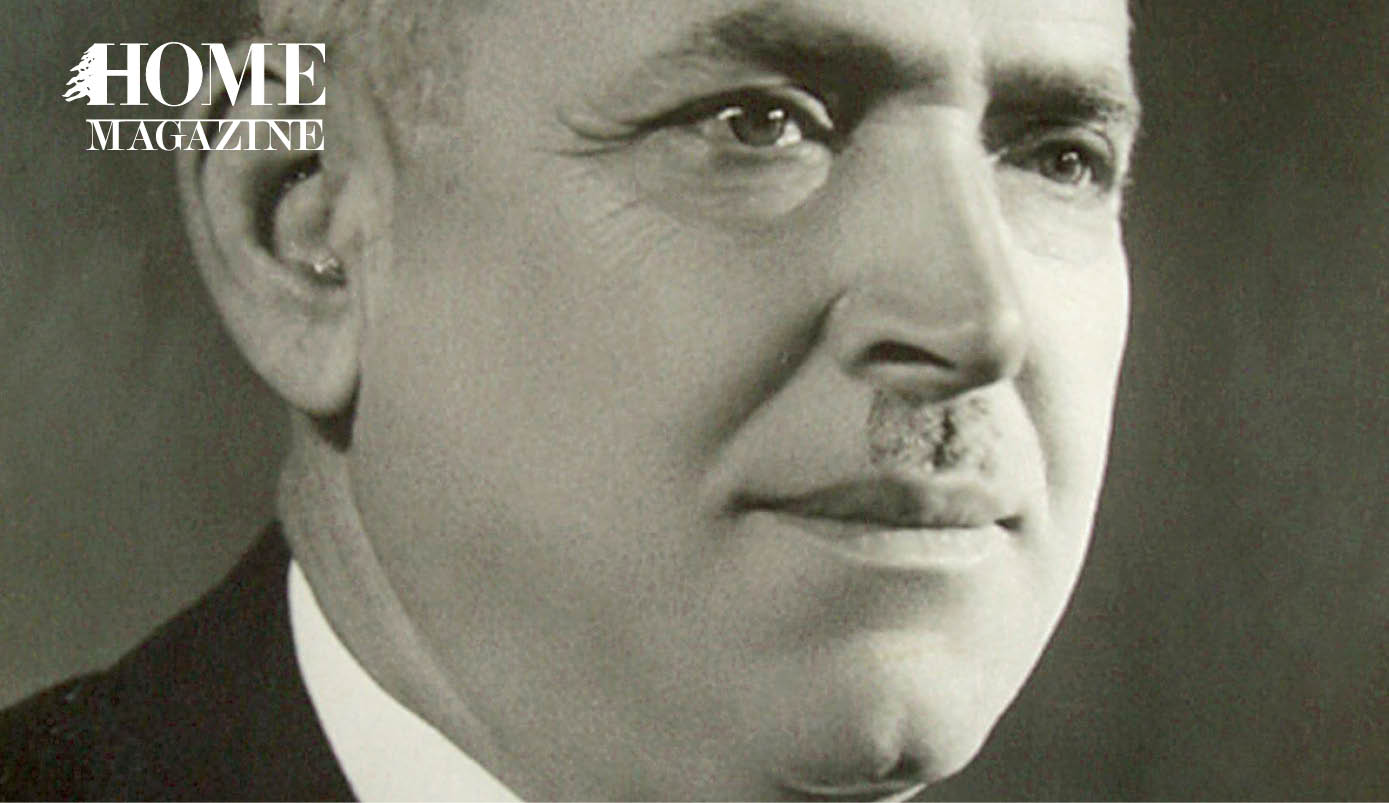
Samia Osseiran Jumblat is a Lebanese artist of considerable renown. She has participated in many collective exhibitions in Lebanon and abroad (including the Sursock Museum’s Autumn Salon) and has held regular solo exhibitions in Beirut. She taught fine arts at Beirut University College (now the Lebanese American University) from 1970 to 1972.
Sanaa Osseiran was the representative of the International Peace Research Association to UNESCO in Paris from 1988 to 1997. In 1992, she initiated the project “Cultural Symbiosis” in Al-Andalus. She directed a number of other projects with UNESCO, including training of trainers in Lebanese civil society in conflict resolution and peace education for children and adults. She also participated in the United Nations Peacekeeping Operations in Western Sahara.
Sheikh Munir Osseiran was the first head of the Jaafari court set up by the French. Before that there had been no recognition of Shiites by France.
Sheikh Muhammad Osseiran is the current Jaafari Mufti of Saida and Zahrani, and the trustee of the Husseiniyah of Saida. He is a prominent member of the Higher Shiite-Islamic Council of Lebanon and is a co-founder and spokesman of the World Organization of Pan-Islamic Jurisprudence. He is recognized as a religious moderate who focuses much of his efforts on interfaith dialogue.
“… the first Shiite family in a predominantly Sunni city.”
Father Afif Osseiran was baptized in the Catholic Church in 1945 at the age of 25 after having a mystical experience while praying at a mosque. By his account, the experience led him to read the Holy Books, including the Gospel.
He earned a doctorate in philosophy and another in Muslim thought in Belgium. He was a novitiate of a Catholic order for nine years, but in 1962 returned to Lebanon before taking his final vows and was ordained a Maronite priest.
He taught at St. Joseph University and the Lebanese University, and founded two HOMEs of Divine Providence in Fanar and Tibnine to provide shelter, education and technical skills to street boys and boys in trouble with the law, without any political or religious discrimination.
While his conversion initially disturbed the family, in time they came to accept his decision and respect his significant contributions to Lebanese society.

Dr. Hayat Osseiran co-founded the South Lebanese Society for the Blind in 1995 with a group of visually disabled people who wanted to help others with visual disabilities in remote areas and villages to become independent, socially and economically. In 1998, she also co-founded the Association for Volunteer Services “to promote, facilitate, and improve volunteering and community service throughout Lebanon and beyond.” And since 2000, she has worked with the International Labor Organization to combat child labor in Lebanon and other countries of the Arab region.
The Honorable Inaam Osseiran studied law at St. Joseph University and in 1981 began her career Lebanon’s foreign service as attaché. Among other posts, she was charge d’affaires (France and Spain), consul general (Egypt and Italy) and First Secretary (U.S. and France). She was appointed Lebanese ambassador to Switzerland in 2003. Today, she is the ambassador to the United Kingdom, a post she has held since 2007.














